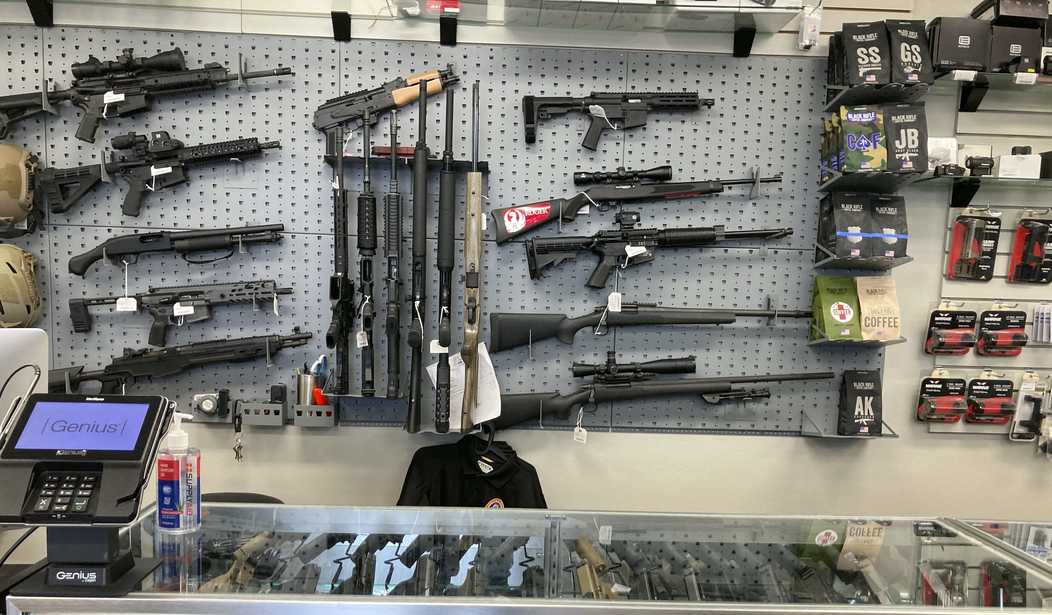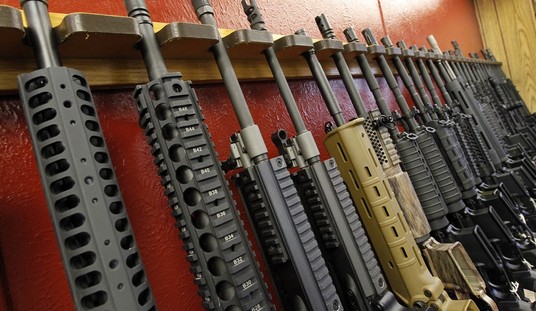Many of the people trying to pass gun control laws targeted at the firearm industry are completely unaware of how the firearm industry works. They seem to think that companies like Glock and Smith & Wesson have some direct contact with the people who buy their guns, rather than it going through multiple steps before the guns get to consumers.
And a bill addressing this is raising concerns for Connecticut Republicans.
The bill allows lawsuits against the firearm industry, all in violation of the Protection of Lawful Commerce of Arms Act, but it's written in such a way that it will create even more problems for the industry than anyone should be willing to tolerate. And those Republicans are hoping the governor will veto the bill.
A controversial bill that would make it easier for the people to sue firearms manufacturers and sellers was approved by the Connecticut Senate yesterday.
The bill, HB 7042, or the Firearms Responsibility Act, is on Gov. Ned Lamont’s desk. It passed through the Senate with a 25-11 vote on May 29. Only one Democrat, Sen. Catherine Osten (Columbia) voted against it, and only one Republican, Sen. Tony Hwang (Fairfield) voted for it.
“It’s an attack on lawful business owners in the firearm industry alone, with civil liability based on the unforeseen actions of criminals,” Sen. Rob Sampson (R-Wolcott) said in a press statement. Sampson is the senior deputy Republican Senator. “There are vague and subjective terms—trap doors—throughout, which are a dream for anti-gun activists and litigators looking to harm the industry with meritless cases. This is simply a political bill disguised as an effort to keep people safe.”
The bill, if signed into law, would require entities and individuals who manufacture, distribute, import, market, or sell firearms to implement “reasonable controls” to make sure that the firearms they are selling do not fall into the hands of straw purchasers, firearms traffickers, people prohibited from owning guns, and people who the seller, manufacturer or importer has “reasonable cause” to believe will use firearms illegally.
Yet there's no definitive way for anyone to make sure of any such thing. What are these "reasonable controls" in the first place? As it stands, all lawful sales in Connecticut have to be conducted via an FFL. That means a NICS check is conducted. Individuals have to clear that in order to take possession of a firearm.
So what other "reasonable controls" are possible?
As it stands, FFL holders are already prohibited from knowingly conducting straw purchases, so again, I fail to see what more one can reasonably expect here. Especially since manufacturers have to ship to an FFL instead of directly to a buyer who purchases a gun via their website.
Yet I think it's important to note that this vagueness isn't a bug; it's a feature. It means that the attorneys, gun control groups, and courts get to play Monday morning quarterback and determine all sorts of other things the manufacturers and/or the store should have done. They're going to create scenarios out of the ether that they'll claim would have prevented a sale, and then file lawsuits that these companies will have to defend.
They don't expect to win them all. It's not about that, though. It's about making it too expensive to do business in Connecticut without bending the knee to the anti-gunners to some degree or another.
Lamont does need to veto this bill, though I somehow doubt he will.
Connecticut is going down the wrong path here, but they've been going down that wrong path for decades. The right to keep and bear arms implies the right to make and sell arms. Companies that do so may have to comply with some regulations for doing so, but this is little more than a way to try and manufacture mistakes they can be held liable for as a predicate for denying people their rights through the back door.
You don't need gun control, after all, if there are no guns available for purchase anymore.









